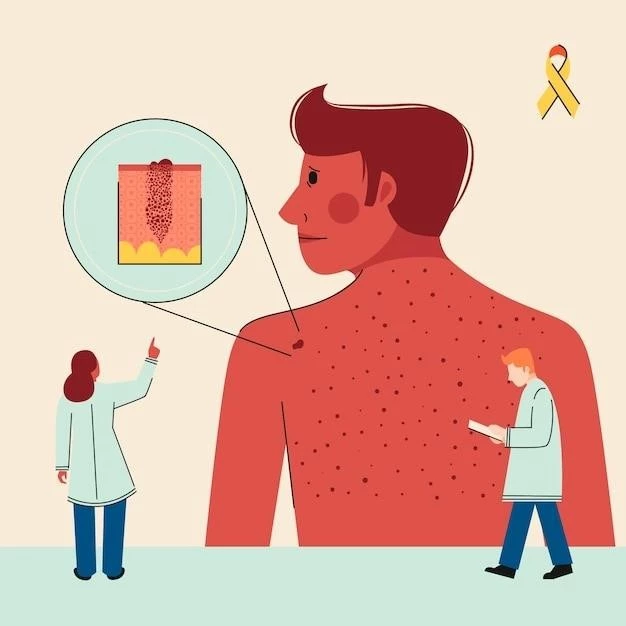Understanding Die Smulders–Vles–Fryns Syndrome
When exploring Die Smulders–Vles–Fryns syndrome‚ understanding the disease and its impact is crucial. This genetic disorder presents a range of symptoms that require proper diagnosis and treatment. Stay informed about this rare syndrome to empower yourself and others.
Overview of Die Smulders–Vles–Fryns Syndrome

Die Smulders–Vles–Fryns syndrome is a rare genetic disorder that affects various aspects of an individual’s development. This syndrome is characterized by symptoms such as developmental delay‚ intellectual disability‚ distinctive facial features‚ growth retardation‚ speech delay‚ and behavioral problems. Diagnosis of Die Smulders–Vles–Fryns syndrome involves genetic testing to identify specific genetic mutations on chromosomes.
Individuals with this syndrome may benefit from early intervention and a multidisciplinary approach to treatment‚ including physical therapy‚ occupational therapy‚ and speech therapy. Understanding the inheritance pattern of Die Smulders–Vles–Fryns syndrome‚ which is typically autosomal recessive‚ can provide valuable insights for families and healthcare providers.
It is essential for individuals with Die Smulders–Vles–Fryns syndrome to receive appropriate care tailored to their specific needs. By staying informed about the syndrome‚ seeking early diagnosis and intervention‚ and accessing support services‚ individuals and families can navigate the challenges associated with this rare disorder more effectively.
Symptoms and Diagnosis
Die Smulders–Vles–Fryns syndrome presents a variety of symptoms that can manifest early in life. These include developmental delay‚ intellectual disability‚ distinctive facial features‚ growth retardation‚ speech delay‚ and behavioral problems such as hyperactivity and aggression. Recognizing these signs is crucial for timely diagnosis and intervention.
Diagnosing Die Smulders–Vles–Fryns syndrome often involves genetic testing to identify mutations on specific chromosomes. Healthcare providers may conduct a thorough physical examination‚ review the individual’s medical history‚ and assess developmental milestones to confirm the presence of the syndrome. Consulting with genetic specialists can help in interpreting test results accurately.
Early detection of Die Smulders–Vles–Fryns syndrome allows for prompt initiation of treatment and support services. Individuals exhibiting symptoms should undergo a comprehensive evaluation to create a tailored care plan addressing their unique needs. Engaging with a multidisciplinary team of healthcare professionals can enhance the quality of life for those affected by this genetic disorder.
Treatment Approaches
Managing Die Smulders–Vles–Fryns syndrome involves a comprehensive approach tailored to the individual’s needs. Treatment may include physical therapy to address motor skill development‚ occupational therapy to enhance daily living skills‚ and speech therapy to improve communication abilities. These therapeutic interventions aim to promote overall functionality and independence.
Individuals with Die Smulders–Vles–Fryns syndrome may benefit from early intervention programs designed to stimulate cognitive and physical development. Behavior management strategies can help address challenges such as impulsivity and social interaction difficulties. It is essential for caregivers and healthcare providers to collaborate closely to ensure consistent and effective therapy implementation.
In some cases‚ medications may be prescribed to manage specific symptoms associated with Die Smulders–Vles–Fryns syndrome‚ such as behavioral issues or seizures. Regular monitoring by healthcare professionals is crucial to assess treatment effectiveness and adjust interventions as needed. Family involvement and support play a vital role in the ongoing management of the syndrome.
Complications Associated with Die Smulders–Vles–Fryns Syndrome
Individuals with Die Smulders–Vles–Fryns syndrome may experience various complications that require careful monitoring and management. These can include respiratory issues due to airway abnormalities‚ feeding difficulties leading to nutritional concerns‚ and an increased risk of infections. Seizures may also occur in some cases‚ necessitating seizure management strategies.
Gastrointestinal problems such as gastroesophageal reflux disease (GERD) and constipation are common complications associated with the syndrome. These issues can impact nutrition and overall well-being‚ highlighting the importance of addressing them proactively. Regular follow-up appointments with healthcare providers are essential to identify and address any emerging complications promptly.
Behavioral challenges‚ such as difficulty with social interactions and emotional regulation‚ can pose additional complications for individuals with Die Smulders–Vles–Fryns syndrome. Implementing behavior management techniques and providing social skills support can help individuals navigate these challenges effectively. Caregivers and healthcare professionals should work together to address both physical and behavioral complications comprehensively.
Current Research and Developments
Ongoing research on Die Smulders–Vles–Fryns syndrome aims to deepen our understanding of the genetic and molecular mechanisms underlying the disorder. Researchers are investigating potential targeted therapies that may address specific symptoms and complications associated with the syndrome. Advances in genetic testing methods are enhancing diagnostic accuracy and identifying novel genetic mutations linked to the condition.
Clinical trials focused on evaluating new interventions and treatment approaches for Die Smulders–Vles–Fryns syndrome are underway‚ offering hope for improved outcomes and quality of life for affected individuals. Collaborative efforts between researchers‚ healthcare professionals‚ and advocacy groups are driving progress in the field and fostering innovative strategies for managing the syndrome.
By staying informed about the latest research findings and actively participating in clinical studies when appropriate‚ individuals and families affected by Die Smulders–Vles–Fryns syndrome can contribute to advancing knowledge and access emerging treatment options. Engaging with healthcare providers who specialize in rare genetic disorders can provide valuable insights into the evolving landscape of research and therapeutic developments.
Support and Resources for Individuals and Families
Individuals and families affected by Die Smulders–Vles–Fryns syndrome can benefit from accessing a range of support services and resources to navigate the challenges associated with the disorder. Connecting with patient advocacy organizations‚ online support groups‚ and specialized healthcare providers can offer valuable guidance and a sense of community.
Seeking out educational resources and assistance programs tailored to the needs of individuals with Die Smulders–Vles–Fryns syndrome can help enhance understanding and coping strategies. Caregivers may also benefit from caregiver support networks and respite care options to manage the demands of caregiving effectively.
Engaging in caregiver training programs and workshops focused on the unique needs of individuals with rare genetic disorders like Die Smulders–Vles–Fryns syndrome can empower families to provide optimal care and support. Exploring available financial assistance options and disability services can also alleviate some of the burdens associated with managing the syndrome.
Conclusion⁚ Empowering Individuals with Die Smulders–Vles–Fryns Syndrome
Empowering individuals with Die Smulders–Vles–Fryns syndrome involves fostering a supportive environment that prioritizes their unique needs and capabilities. By advocating for comprehensive care‚ staying informed about the latest research and treatment options‚ and accessing available support services‚ individuals can enhance their quality of life and well-being.
Encouraging open communication with healthcare providers‚ educators‚ and therapists can facilitate personalized care plans that address the specific challenges associated with the syndrome. Embracing a collaborative approach that involves family members‚ caregivers‚ and a multidisciplinary healthcare team can contribute to positive outcomes and holistic support.
Through ongoing education‚ self-advocacy‚ and participation in research initiatives‚ individuals with Die Smulders–Vles–Fryns syndrome can actively contribute to advancements in understanding and managing the disorder. By promoting awareness and acceptance‚ the community can create a more inclusive and supportive environment for individuals with rare genetic conditions.
